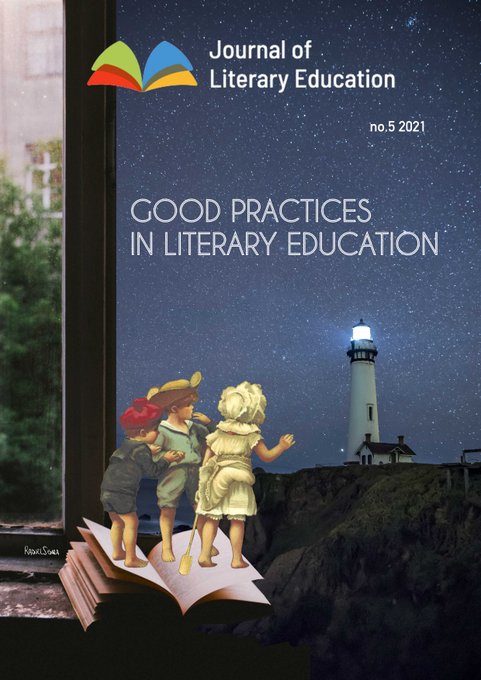Printed hyper-texts in the Greek literature for children. Breaking the canon and creating a new type of implied reader: the case of Eugene Trivizasa
DOI:
https://doi.org/10.7203/JLE.5.21296 Abstract
Abstract
The article focuses on two ground-breaking books by the renowned author Eugene Trivizas, which adopt a hyper -media logic, incorporating, apart from text and image, forms of expression that refer to the digital world of multimedia.
We analyse in detail the hyper-text characteristics of the selected books which make the process of reading a game that involves the energetic participation of the young readers.
We argue that in view of the contemporary canon of the Greek children's literature, that is, books that adopt a linear form of narration, printed hyper-texts like the ones we examine are examples of non-canonical literature, and enrich the form but also the content of contemporary Greek literature for children. At the same time, because of their hyper-text characteristics, such books construct an implied reader with quite a few qualifications, an implied reader who is not deterred by their neoteric form, accepts the initiative that they offer him and enjoys the reading game.
 Downloads
Downloads
Downloads
Published
-
Abstract381
-
PDF225
Issue
Section
License
![]()
This work is licensed under a Creative Commons Attribution-NonCommercial-NoDerivatives 4.0 International License.
Authors who publish with this journal agree to the following terms: Authors retain copyright and grant the journal right of first publication with the work simultaneously licensed under a Creative Commons Attribution License that allows others to share the work with an acknowledgement of the work's authorship and initial publication in this journal. Authors are able to enter into separate, additional contractual arrangements for the non-exclusive distribution of the journal's published version of the work (e.g., post it to an institutional repository or publish it in a book), with an acknowledgement of its initial publication in this journal. Authors are permitted and encouraged to post their work online (e.g., in institutional repositories or on their website) prior to and during the submission process, as it can lead to productive exchanges, as well as earlier and greater citation of published work (See The Effect of Open Access).



